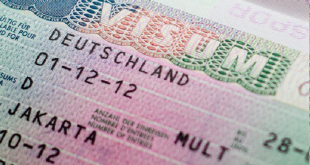In order to indulge in a Master or PhD studies in Germany, you have to prepare pathway courses that will increase your chances to getting accepted in a university and will help you do better at your dream study.
It is not difficult to know why Germany is so popular as a study destination. It has a wide reputation as a global leader for innovation and technology research. The country also has a strong economy as well as famous traditions in areas such as engineering and manufacturing. All this makes the student aspiring for a master’s and Ph.D. study in Germany. As a matter of fact, master and PhD studies in Germany are a rather high academic title. More and more international students nowadays pursue such studies.
Table of Contents
Types of PhD in Germany
Individual PhD
It is the traditional and most popular choice. Basically, in this type of PhD, you prepare a thesis or dissertation under the supervision of a professor. However, you will mostly work independently. Likewise, the length of this PhD varies. Generally, it may last from three to five years.
This option provides a great deal of flexibility, but it also requires a great deal of personal initiative and responsibility. In order to obtain your PhD, you will not only do research at a university, you can also complete a project at a non-university research institution or in a company.
Structured PhD programs
You can also choose what is known as an organized PhD program. Basically, this program involves a group of PhD students who are directed by a group of supervisors.
About 600 programs of this kind are available in Germany. Indeed, these programs differ from individual PhD programs, as students’ proposals must correspond to existing PhD programs. On the other hand, individual PhDs can have greater freedom to suit an individual research project.
You will also need to attend lectures and seminars, usually, you will have a mentor.
PhD’s requirements in Germany for international students
Admission requirements differ between universities and doctoral programs. But in general, you will need to have a good academic degree equivalent to a German master’s degree.
Alternatively, well-qualified international applicants with a bachelor’s degree can be accepted as PhD students through the Fast Track Program. This program will include taking the acceptance exam and possibly attending an interview.
You will need to demonstrate your English proficiency with a language test such as IELTS or TOEFL. As an illustration, if you wish to apply for a PhD in German, you may need to prove your proficiency in the language. For that, you should sit a test such as DSH or TestDaF.
Read here how to earn a master’s degree in Germany.
How to apply for a PhD in Germany?
There is no central admission process or selection office for PhD students in Germany.
Moreover, the application process varies depending on whether you have chosen a traditional (individual) or structural PhD degree. In that case, you will simply need to apply directly to the university of your choice.
As a matter of fact, if you applied for a PhD, you will first need to find a suitable professor who wants to be your supervisor. You can find a supervisor through the contacts from your previous university, or by searching for institutes and research centers, or teams related to your field of interest.
How to find a PhD Supervisor?
Here are also some platforms where you can find the right supervisor for your PhD.
DAAD
At the PhD section of DAAD, the German Academic Exchange Service, there is a link you can click on to access to the names of junior and senior researchers in Germany with which you can get in touch. There is also a database for all international programs as well as all further info you might need about research and doctorate in Germany.
German Research Institutions (GERiT)
The website has details on about 25,000 institutions of research throughout Germany. You can research by subject or location and get all the information you need to choose an institution at which where you can do your PhD.
PhDGermany
This website records all PhD openings in Germany, and specifically targets international candidates. You will find mostly programs in English then. Moreover, they help you find the right program as well as the right supervisor. And lastly, they guide you through the application process.
The German Higher Education Compass
This is another database with all PhD openings at various universities in Germany. You can then search on the basis of departments, form of doctoral thesis as well as the admission requirements.
PhD in Germany with scholarship
At last, in order to finance your PhD studies, you have to be eligible, otherwise you have to apply for a program-related scholarship. DAAD also has a database with the list of all the PhD scholarships you can apply for in Germany.
Read also here our guide on the scholarships in Germany, where there are a few available funding for PhD and doctoral studies.
Learn as well about the best universities in Germany




 Aljawaz Your guide to study abroad
Aljawaz Your guide to study abroad






















